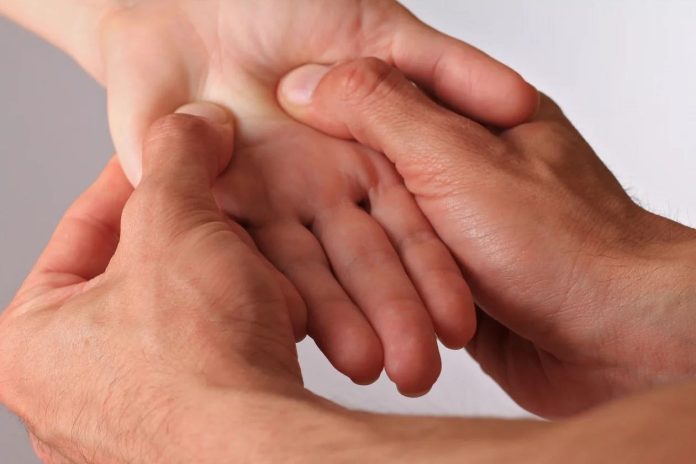Constipation is a problem suffered by approximately 90% of Americans and comes with significant cost to both healthcare costs and quality of life. Now, a new study by UCLA Center for East-West Medicine researchers offers a simple solution: self-acupressure. The findings were published online in the Journal of General Internal Medicine.
The study authors note that hospital costs related to constipation are significant; they were estimated at $4.25 billion in 2010 alone. Common treatments include laxatives, increased intake of dietary fiber and fluid, as well as exercise. The condition is more common among women, non-whites, individuals older than 60, those who are not physically active, and the poor.
Principal investigator Ryan Abbott, MD, JD noted that all primary care and general internal physicians should consider self-acupressure as a first line intervention, combined with conventional treatment. Dr. Abbott is a visiting assistant professor of medicine in the division of general internal medicine and health services research at the David Geffen School of Medicine at UCLA. He explained, “Constipation is very common and can have debilitating symptoms, but patients can perform this simple intervention themselves to treat their own constipation and improve their quality of life. It can also help to limit healthcare costs and excessive medication use.”
The study group comprised 100 patients (nine of whom dropped out during the trial) aged 18 and older whom met the established criteria for functional constipation. These criteria require that the subjects have fewer than three bowel movements per week and that for at least 25% of their defecations they: strain during defecation; have lumpy or hard stools; experience a sensation of incomplete evacuation; experience a sense of obstruction or blockage; and use manual maneuvers such as digital evacuation
The patients received just three to five minutes of instruction in perineal self-acupressure, which is a simple technique that involves the application of external pressure to the perineum: the area between the anus and genitals. The subjects were encouraged to perform the exercises on their own for four weeks when they felt the need to defecate. They reported using the technique three to four times a week on average. The self-treatment broke up hard stools, relaxed muscles, and stimulated nerves responsible for bowel movements.
The investigators also found: 72% of the patients said the technique helped them break up, soften or pass stools; 54% claimed it helped avoid hemorrhoids or lessen the severity of existing hemorrhoids; 82% said they would continue using the technique; and 72% said they would recommend the technique to family and friends. “This unique self-administered acupressure treatment for constipation is just one example of how an integrative approach to medicine helps patients and is cost-effective, too,” explained Ka-Kit Hui, MD, Wallis Annenberg Endowed Chair in Integrative East-West Medicine at UCLA and founder and director of the UCLA Center for East-West Medicine. He added, “Utilizing both Eastern and Western approaches helps create a new paradigm of medicine that combines the best of both worlds.”
The authors cite some limitations to their study. For example, similar to all trials of behavioral interventions, this was not a blinded trial. The number of subjects was also relatively small, with less than 100 patients completing the study. In addition, the researchers were not sure whether the technique could prevent constipation or whether similar techniques would result in comparable improvements. Despite, the foregoing, however, they note that their study does provide evidence that the technique could be useful in tandem with other treatments.
The authors wrote: “As a non-invasive, non-pharmacological treatment intervention for constipation, perineal self-acupressure likely carries a lower risk for side effects and complications than commonly used medications such as stool softeners, fiber supplements, stimulants, laxatives and lubricants. In addition, perineal self-acupressure may help to control treatment costs because it only requires a brief, initial period of training. Furthermore, not all patients respond favorably to existing treatment options, and perineal self-acupressure may represent an effective alternative to conventional treatment options.”















